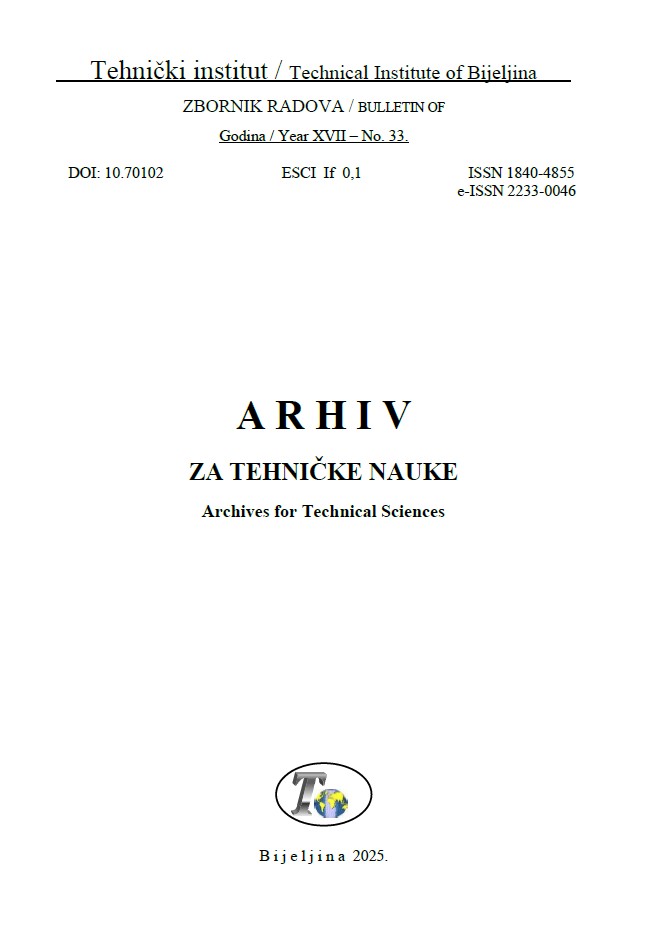CYBER-PHYSICAL MICROGRID MANAGEMENT USING EXPLAINABLE AI FOR HIGH RENEWABLE ENERGY PENETRATION
The evolution of traditional microgrids to integrate distributed renewable energy sources, such as solar and wind, has transformed them into complex cyber-physical systems (CPSs). While this enhances sustainability, it introduces challenges related to intermittency, uncertainty, and real-time operational decision-making. A major concern is the reli...
By Anjali Krushna Kadao, Sanjay Kumar
RULE-BASED ITERATIVE PREPROCESSING WITH DEEP SIAMESE GRU–BILSTM FOR EFFICIENT DOCUMENT STREAMING
Efficient document streaming requires robust preprocessing and semantic modeling to handle noise, redundancy, and morphological variations in large-scale text data. Existing stemming and document processing techniques often fail to preserve contextual relevance, leading to reduced classification and retrieval performance. In a bid to overcome this ...
By K. Ranjit Kumar, S. Thirumaran
QUANTIFYING THE IMPACT OF ROBOTICS AND AUTOMATION ON SAFETY AND OPERATIONAL PERFORMANCE IN MODERN MINING SYSTEMS
The aim of the research is to assess the applicability of robotics and automation technologies to enhance safety performance and operational efficiency in mining operations in surface, underground, and coal mining settings. A mixed-methods and systematic approach was embraced, which involved the secondary data through peer-reviewed publications, in...
By Parvindar Kaur Chhabda, Arvind Kumar Saxena
EXAMINING DIGITAL TRANSFORMATION AND ECOSYSTEM-CENTRIC MARKETING FOR SUSTAINABLE VALUE CREATION IN THE PLATFORM ECONOMY
The platform economy has been growing rapidly, intensifying digital transformation efforts. Still, most platform companies fail to convert technological investments into sustainable value due to disjointed ecosystem coordination and a short-term marketing focus. This paper will explore the role of ecosystem-based marketing, facilitated by digital t...
By S. Karunakaran, V. Saillaja, R. Suguna, B. Sureshbabu
MEDIAN ATTRIBUTE HYBRID CLUSTERED MODEL USING PARTICLE SWARM OPTIMIZATION FOR NETWORK INTRUSION DETECTION
The rapid growth of cloud-based and large-scale network infrastructures has increased the complexity and frequency of cyber-attacks, demanding efficient and scalable intrusion detection systems (IDS). This paper will also attempt to create a better Network Intrusion Detection System (NIDS) by incorporating a Hybrid Median Attribute Clustering model...
By Rajasekhar Kaseebhotla, Raghava Rao, Mallikarjuna Rao
INTEGRATION OF GNSS AND REMOTE SENSING TECHNIQUES FOR HIGH PRECISION GEODETIC APPLICATIONS
Geodesy is dependent on proper positioning and spatial information, and this is usually determined by GNSS and remote sensing techniques. Nevertheless, the conventional techniques are usually limited in terms of accuracy, particularly where the environment is complex. This paper explores the use of GNSS data in conjunction with remote sensing in or...
By Ankita Nihlani, Nishtha Sharma
INFLUENCE OF THE CENTER OF GRAVITY METHODOLOGY ON THE OPTIMIZATION OF A LOGISTICS DISTRIBUTION NETWORK
The center of gravity (COG) approach is crucial in streamlining the logistics distribution channels by reducing transportation expenses and improving performance. This paper discusses the use of the COG method in the identification of the most optimal distribution center locations in a network of logistics. To determine the level of effectiveness o...
By Astrid Chabeli Vereau Benites, Neicer Campos Vasquez
DEVELOPMENT OF ADVANCED COMPOSITE MATERIALS FOR AEROSPACE ENGINEERING APPLICATIONS
The world aerospace industry is now facing an important shift from traditional metallic structures to high-tech advanced composite materials in order to meet the two-fold needs of structural optimization and environmental sustainability. This study examines the evolution of high-performance composite materials, particularly carbon fiber reinforced ...
By Ravinder Sharma, Shyam Maurya
BIO INSPIRED RECONFIGURABLE ANTENNA ARRAYS FOR ULTRA-LOW POWER BODY AREA COMMUNICATION NETWORKS
Bio-inspired reconfigurable antenna arrays may be one possible answer to the challenges of energy efficiency, capability, and stability in ultra-low-power Wireless Body Area Networks (WBANs). In this paper, a bio-inspired reconfigurable architecture for antenna arrays is proposed, which can adaptively change radiation patterns and impedance propert...
By Roohee Khan, Ashu Nayak
E-VOTING SYSTEM USING BLOCK CHAIN TECHNOLOGY AND CONSENSUS ALGORITHMS FOR SECURE AND FAST TRANSACTIONS OF VOTES
This paper introduces a new E-voting system that uses the consensus algorithms to ensure secure, efficient, and transparent voting processes on the basis of blockchain. The suggested model combines a number of cryptographic methods and consensus algorithms to overcome the current issues related to the traditional voting systems, including slow proc...
By V. Malathi, R. Jaichandran






